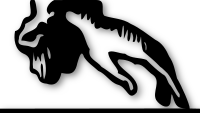- Inicie sesión o registrese para enviar comentarios
28-29 November 2008, Athens, Greece
INTERNATIONAL UNION OF HISTORY AND
PHILOSOPHY OF SCIENCE
DIVISION OF HISTORY OF SCIENCE AND
TECHNOLOGY
TEACHING COMMISSION
FIRST ANNOUNCEMENT & CALL FOR
PARTICIPATION
SYMPOSIUM:
"EDUCATIONAL ASPECTS OF THE HISTORY
OF SCIENTIFIC INSTRUMENTS"
28-29 November 2008, Athens, Greece
In the last 30 years it
has been a major aim for sociology, history,
and philosophy of science to investigate and to understand natural sciences as practical work: a work of minds, of
hands and as a social process. Within this context the History of Scientific Instruments might
contribute into science teaching, since the study of the interaction between
the contexts of "manufacture" and "utilization" reveals both the cultural and
human nature of science and the latter's interaction with society, while it
facilitates teaching and learning science at the same time.
There are many aspects to consider in examining
the design and function of instruments. Scientific observation is determined by
the human sensory system, which generally relies on instruments that serve as
mediators between the world and the senses. Thus, instruments can be considered
as a reinforcement of the senses, providing a great capacity for penetrating the
mysteries of nature, increasing the power of observation and making induction
processes easier. Furthermore, scientific instruments constitute a major factor
in the establishment of speculations and hypotheses, as well as in the
calculation of measures in an abstract mathematical way which allows checking,
refuting or changing previously established theories.
Many
pedagogical aspects are related to the study of historical scientific
instruments. The study of historical scientific instruments makes it possible to
understand science as a practical work that takes place, mainly, in
laboratories. It enables learners to get an idea of the meaning of experimentation in
the history of science. This comprises the difficulties of experimenting, the
development of experimental skills as well as the possibility of sensuous
experiences. Selected
scientific instruments will be the epistemological connection between a
determined practical question, inserted in a determined era and with all the
political, economical, religious, cosmological conditionings, etc, that are
inherent to it on one hand and, on the other some kind of theoretic knowledge,
such as Geometry, Mechanics, Chemistry, etc.
More
specifically, the study of the History of Scientific Instruments is expected to
introduce students to the philosophy and process of measurement, while the
information on their historical evolution is decisive for perceiving the "historical
time" concept. Furthermore, information on scientific instruments
characteristics like: country of origin, manufacturer, period of manufacturing,
manufacturing materials and their usage,
leads students to know the scientific and technological development of their
country and other countries, as well as scientists' lives and activities, who
left their mark on the history of humanity. Activities, such as reconstructing
the instruments and methods used in historical discoveries, permits the student
of discovery to re-experience the processes of generating and interpreting the
original data in its physical context, thereby casting light on the
difficulties faced by the original investigators in arriving at the meaning of
what they "saw".
Studying the history of
Scientific Instruments learners have the opportunity to find out more about
historical ways of experimenting. They can experience and reflect on themselves
as part of experiments. By using scientific instruments, in real or
computational environment, students will be able to redo historical experiments
and, in this way, experiences become self-experiences.
Students can also work
with historical instruments that possibly are out of use today, in
order to develop several skills to succeed in a replicated experiment.
Within this context, they can use scientific instruments in order to interpret their data,
discover unexpected results, confirm the validity of their data, make
predictions about their solutions and check for errors.
These and other pedagogical aspects of
scientific instruments and their history can be presented in this symposium and
the experts may contribute to the enlargement and development of the field.
For information concerning participation in the
Symposium, please contact the organizers.
ORGANISERS:
A/Professor Michael R. Matthews
President of the DHST-Teaching
Commission
School of Education
University of New South Wales
Australia
Professor Constantine Skordoulis
Secretary of the DHST-Teaching
Commission
School of Education
University of Athens
Greece
kskordul@primedu.uoa.gr; kostas4skordoulis@gmail.com
